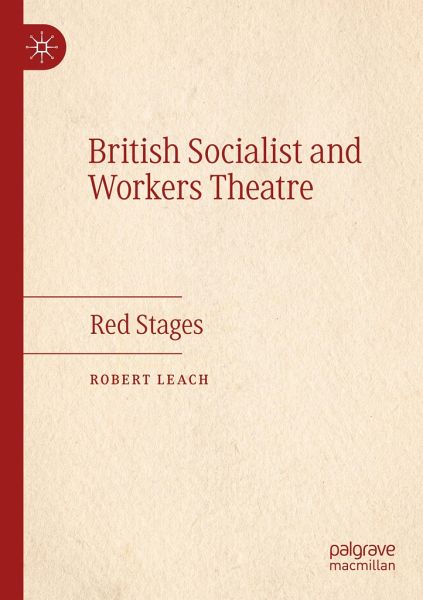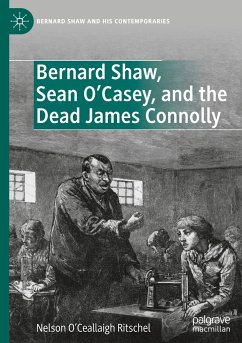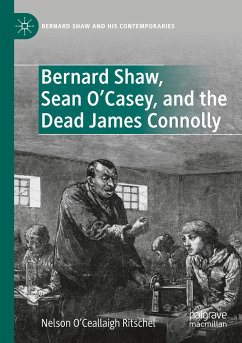
British Socialist and Workers Theatre
Red Stages
Versandkostenfrei!
Versandfertig in 6-10 Tagen
106,99 €
inkl. MwSt.
Weitere Ausgaben:

PAYBACK Punkte
53 °P sammeln!
This book provides an overview of the inception, development and achievements of British socialist and workers theatre - a feat which has not been attempted before. It explores the connections between politics and culture (specifically theatre) and between political theory and cultural (theatrical) expression. The book is organized chronologically and uncovers much in labour and theatre history which is in danger of being lost. It can also be seen as a way into different moments in its subject's story (e.g. post-Ibsen naturalism; agitprop theatre; 'fringe' theatre of the 1970s) and the relatio...
This book provides an overview of the inception, development and achievements of British socialist and workers theatre - a feat which has not been attempted before. It explores the connections between politics and culture (specifically theatre) and between political theory and cultural (theatrical) expression. The book is organized chronologically and uncovers much in labour and theatre history which is in danger of being lost. It can also be seen as a way into different moments in its subject's story (e.g. post-Ibsen naturalism; agitprop theatre; 'fringe' theatre of the 1970s) and the relationship of such forms to specific political events and ideas at specific points in history.












